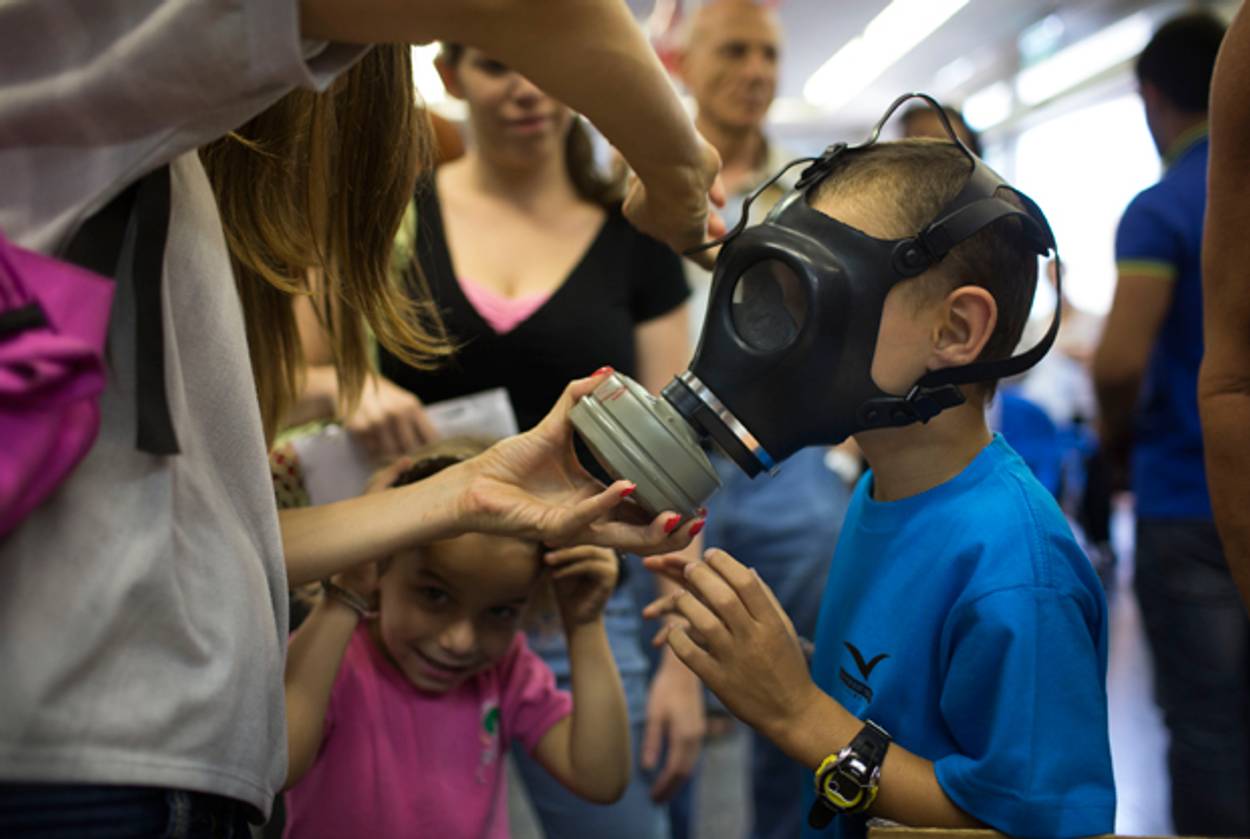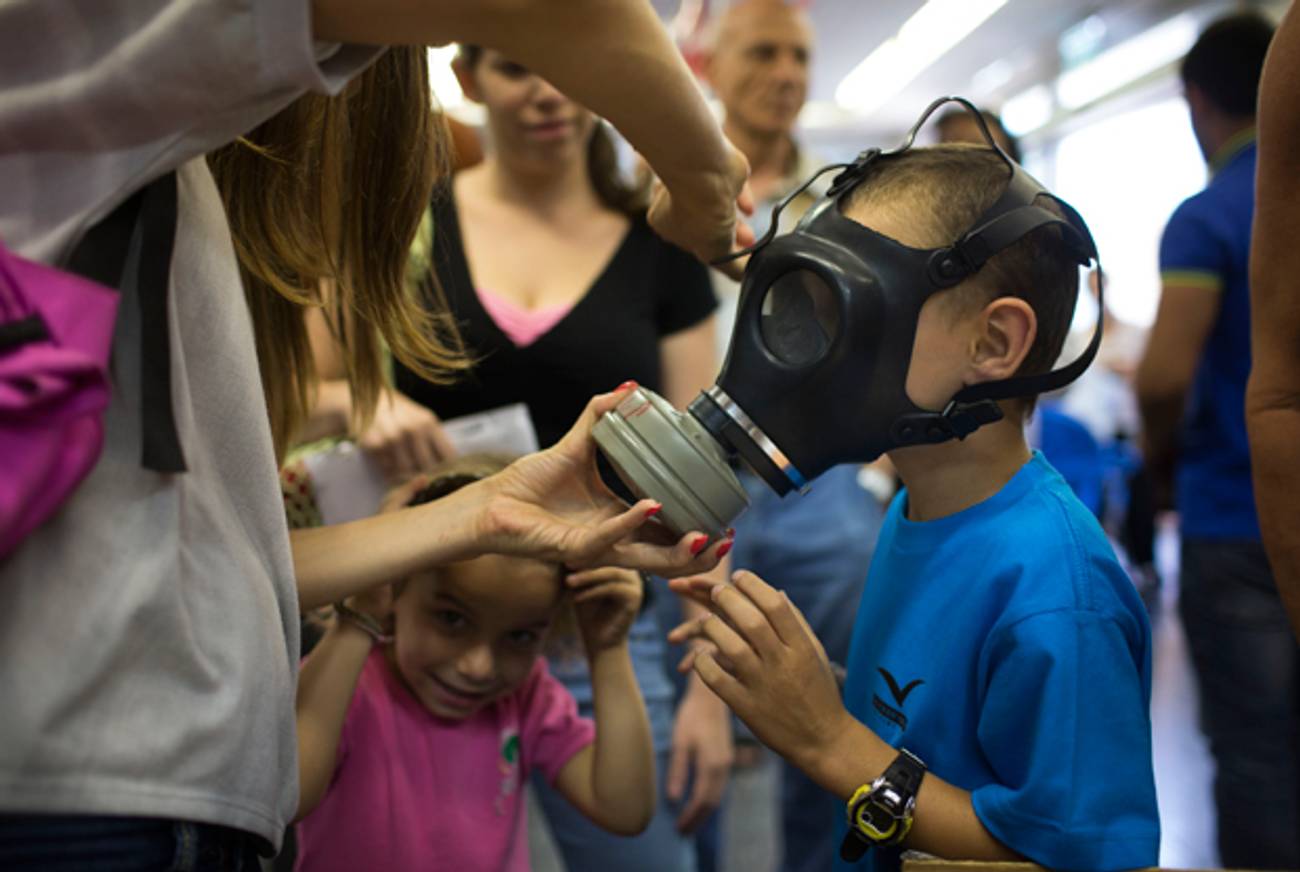Israelis Getting Gas Masks After Syria Attack
With chemical weapons used in Syria, Israelis fear an attack at home




Horrifying pictures and videos of victims of a chemical weapons attack are pouring out of Syria, where Bashar Assad’s regime is believed to have gassed its own people. Doctors Without Borders has reported treating 3,600 patients for “neurotoxic symptoms,” 355 of whom have died. This afternoon, Secretary of State John Kerry delivered a sharp rebuke to the Syrian regime, dubbing its conduct a “moral obscenity.”
While the international community deliberates over how to respond, Israelis have a more immediate concern: procuring gas masks. Because once chemical weapons are in play, so is the possibility that they will fall into the hands of terrorist factions seeking to harm Israel, or even be used in a diversionary attack on the Jewish state by a desperate Syrian regime.
And so demand for gas masks has risen four-fold, overloading the Israel Postal Service, which is responsible for their distribution. Israelis have taken to Twitter to voice their anxiety, with one representative tweet saying, “I’ve been trying to get one, but the service is terrible. I went to a post office today and they didn’t have any information.” To cope with the onslaught of inquiries, the postal service has placed a link to a gas mask order form at the center of its web home page. The undeniably creepy form features a picture of a smiling model delivering boxes of masks to a home.
The last time Israel faced a serious, wide-scale chemical weapons scare was during the 1991 Gulf War, when Saddam Hussein rained Scud missiles down on Israeli population centers in retaliation for U.S.-led intervention against Iraq. As ever, even though Israel was not actually engaged in any hostilities with its antagonist, its civilians were still a target. Saddam’s missiles ultimately did not contain chemical payloads, and only 13 were killed in the bombardment–two directly, and the rest due to heart attacks and suffocation. As Israelis stock up on gas masks in case history decides to repeat itself, let us hope that they never need to use them.
Yair Rosenberg is a senior writer at Tablet. Subscribe to his newsletter, listen to his music, and follow him on Twitter and Facebook.